This interesting letter was transcribed directly from the internet where I found it offered for sale in October 2011. It was written by 27 year-old Isaac Farwell Holton (1812-1874), the son of William Holton (1771-1857) and Olive Rockwood (1772-1836). Holton graduated from Amherst College in 1836. Three years later, when this letter was written, he had just graduated from the Union Theological Seminary in New York City and was about to begin employment with the Home Missionary Society in Michigan and Illinois. (See footnotes for Holton’s biography.)
The letter is directed to 21 year-old Elizabeth Sophia Gates (1818-1876) of Ashby, Middlesex, Massachusetts though Holton has added a note at the top indicating that it is intended for his college chum, John Edward Farwell (1809-1858). John Farwell and Elizabeth Gates were engaged to be married at the time; they wed on 30 June 1840. Her parents were Ezra Coolidge Gates (1787-1872) and Mary Parris (1793-1876) — referred to in this letter as “Mr. & Mrs. Gates.” His parents were Allen Farwell (1779-1818) and Betsey Lawrence (1781-1840). (See footnotes for Farwell’s biography.)
Near the end of the letter, Holton says that he has sold a bookcase, table, and cloth belonging to Farwell suggesting that not only were the two attending the Union Theological Seminary together, they were undoubtedly rooming together in New York City as well.
TRANSCRIPTION
Directed to E.S.G. but written to J.E.F. Contains nothing confidential.
Canal Boat Arcade
16 Nov 1839
I have not been able to address a line to you from New York, nor since, until this afternoon. I am now near the termination of the Erie Canal. It is Saturday. I left New York [City] a week last Wednesday evening and now I know not whether to go back & inform you historically of all that has passed or launch you at once in [my present situation]. When I look back to the eventful period that has elapsed, I shrink from the task of going through it again. We parted at Fitchburg [Massachusetts]. The rest of that day was as long as it was desolate. I took an early start for Boston the next morning. The first part of my road was shrouded in darkness. I took the wrong road & when the cock was crowing, I was near Groton. It was a beautiful morning. I had determined to walk the whole distance & therefore refused a cordial offer of a ride.
I arrived in Concord at half past 10. As I approached the place, I recollected that Miss Edwards left A. just before the arrival of a letter for her which it was that might contain news of sickness at home. I called to inquire supposing that I should write at Boston. I thot the call would delay me 4 minutes. I staid 4 hours. I did not even expect to see the family. But not content with treating me [cordially], he served wine & music (Amelia is no contemptible player at the piano). They proceeded to dig up their flower beds for bulbs of lilly, gladiolas, &c. I left there almost oppressed with a sense of kindness alike unexpected & undeserved.
It was near 3 when I resumed my walk. I remembered that I walked in the steps of predecessors whose steps were quickened by the music of rifles & whistling balls – sounds as ungrateful to them as ever music is to those who are not in humor for it. They had been sent to destroy powder & lead; they endured the combustion of the former & went back to Boston [with] many specimens of the latter more securely concealed about their persons than misers are [protective of] their gold.
Of my stay in Boston, I need say little. Sabbath I spent at Uncle Welles.’ I visited Cambridge & became acquainted with some of the _____lists there. Went to the Conservatory of Plants in _____. It will in five years if under good management be [successful].
Buffalo, 19 Nov.
As I trust myself to the treacherous bosom of Erie tomorrow, I will try to mail my letter before I start. The passage is dangerous & I may not again reach the shore. I am even now drenched with the spray of Niagara…The falls cannot be seen from the American side. Just enough water runs this side Goat Island to prevent wading to it in dry weather. I went almost under the sheet of falling water on the Canada side & was rewarded with such a drenching as I had not had but once in 5 years. The precipice is high, 1/2 as high as the Palisades and the sheet falls out far from it. If it extended as far clear across, our Yankees would build a carriage road under it & indeed that may some day be done, tho I doubt it. The roar is not very loud, tho it sounds quite plain tonight [at a distance of] 22 miles. I should not expect to hear it so plain five miles.
To return [to my story], I visited the Missionary Rooms [of the American Home Missionary Society] at Boston & left in writing my testimonials of Elizabeth. Of your probable destination, I could learn but little. It may be South Africa. Did not you, Elizabeth, dread it so much I should hope it would. Dingaan, the [Zulu] Ruler tyrant is now humbled. He has been almost the only obstacle.
Saw Elizabeth Mills at South Boston — assistant pupil in a flourishing school. On my return to New York [City], found brother Hall [note: possibly John Goodman Hall?] had been there to see me. He is now teaching district school near Morristown [New Jersey]. I arrived Wednesday.
Started next morn for Morris [New Jersey]. Called at Mr. Valseys in Robinson at to see if they wished to send. Joanna Day was there. She had been South teaching. I had almost forgotten her. Hall was much improved. Some things I could wish different. Saturday he cleaned my watch. Sabbath heard two excellent sermons from [Rev. Benjamin] Schneider at Whippany [New Jersey]. [Benjamin Gilbert] Riley is married. Monday returned to New York [City]. [Found] Mrs. Merriam surprisingly well. Left next week Wednesday evening. Took French leave of most of my friends. Did so in fact at Dr. [John] Torrey’s. Staid there one night. Seminary very full…
On Lake Erie a man is not sure of his dinner after he has eaten it. My own preparations consist simply of 26 cents worth of cakes & apples. Our room is more comfortable than my quarters will be on land, bedding excepted. Our apartment is over the main deck but lighted only by a skylight. We have quite a decent company.
So I return [to my story]. I Left New York on Wednesday evening to [go to] Albany. In a.m., took my last walk east of the Hudson. The raw air drew tears from my eyes as I looked from the very high plain east of me. It was one of the noblest prospects I ever saw.
Visited the Troy [Female] Seminary. Saw there Mrs. Yates, alias [Emma] Willard, [who goes by] the latter name, acting as she said in capacity of advisor general. It is an immense boarding & day school.
Left at 8 in the evening in [a canal boat named,] The Wyandot (5 day line). Eight days of imprisonment succeeded. Saturday night we rode till daybreak when with morning light our captain’s conscience returned & he stopped 1 1/2 miles from any church. No persuasions would move him [to proceed] so near that our lame men & females could attend church. 3 of us walked to Fultonville Church. [Traveled a] half day only. The bedding was insufficient [and we] had to keep a fire all night. The cabin was well filled. My living was generally bread & milk or indeed anything I chose. This was very pleasant. Around at Rochester, The Wyandot stopped. They proposed putting me on a Sabbath breaking boat on Friday evening telling me we should arrive in Buffalo on Saturday night. I would not believe them. They then threw themselves on my mercy. I let them off by paying me 1.12 extra for Sabbath expenses. The boat left me at Lockport & [travelled on without me where it] arrived in Buffalo Sabbath noon. [It then] left the same day having the passengers to seek lodgings on the Sabbath.
I introduced myself to Rev. Mr. [William Carpenter] Wisner at the close of a meeting [at the 2nd Presbyterian Church in Lockport, and was] invited to spend the Sabbath with him. I declined. Staid with one of his elders – was begged away from him Sabbath P.M. & afterward begged back again. I had a pleasant & profitable Sabbath. Mr. Wisner took tea with me. His wife [Jane] is absent or he said he should not have permitted me to decline his invitation.
Monday, [I left Lockport and] took the cars at 9 for Niagara. Met [Rev. Gilbert] Rockwood at the stopping place 7 miles from the falls. Went home with him [to the] Tuscarora Mission. They progress very slowly with the language. The Indians [have] never heard a sermon except through interpreter. Rockwood’s family [consists of a] wife [Avis Hooper], babe [Sarah], & a teacher.
I have now in a manner brot my history up to this moment. Should I live to reach Michigan, I expect to spend the winter as shop agent for the Evangelist. My eyes are a little improved not much. On the canal my life was nearly as lazy as Dr. Rogers would wish. Yesterday, I wrote my will [and] left it with Rockwood. Today, I take myself on the lake with calm reliance on God. The prospect of the weather at this moment is more favorable than it has been for some days. Still I am not in a frame of mind for writing. In either event, I have seen you I fear for the last time. In the whole, my visit to New England was the most pleasant period of my life…
But I must close. When I reach Detroit, I will mail a letter giving my address. Write but do not pay the postage. I have tried to make my a’s different from my o’s, but you see I cannot. My letter of necessity is dull having had every thing so distract me [while writing] every line. I hope you have received your medical books ere this. Your French books & Christianity are at Mr. Merriam’s. I sold your bookcase, table, & cloth for $4 subject to your veto. I thought I should make some part of this letter interesting to Mr. Gates’ family but I have not succeeded so I must content myself with sending my respects to them individually, Mr. & Mrs. Gates, Elizabeth & Mary. Would that I could emphasize each of these names.
The Lord be with you. – I. F. Holton
FOOTNOTES
From the Amherst College Biographical Record, Class of 1836:
- ISAAC FARWELL HOLTON: Prepared Berwick, Me., Limerick, Me. and Amherst Acads. Union Theological Seminary, 1836-39; Home Missionary in McDonough, Adams and Pike Counties, Ill., 1840-44; instructor in Greek and natural history at the Mission Institute, Quincy, Ill., 1842-43; principal of school in Natchez, Miss., 1844-45; travelled in New Granada, South America, 1845-47; professor of botany N. Y. Coll. of Pharmacy, 1848-52; lecturer in chemistry and natural history, Coll. of N. J., 1854-55; s. s. Meredith Village, N. H., 1855-56; professor of chemistry and natural history Middlebury, 1856-57; s. s. Laurence, Chemung and Alden, Ill., 1858-63; ordained as Presb. May 1, 1860; s. s. McDonough Co., Ill., 1863-65; editor of Boston Recorder, 1865-67, and Boston Daily News from its establishment. Author New Granada: Twenty Months in the Andes. D. Everett, Jan. 25, 1874.
- JOHN EDWARD FARWELL: Prepared New Ipswich (N. H.) Acad.; A. C., 1833-36. Andover T. S., 1836-37, 1838-39; Union T. S., 1837-38; ordained as evangelist Ashby, O. 30, 1839; preached occasionally, 1839-42; s. s. Castine, Me., 1842-43; p. Rochester, N. H., 1843-52; s. s. St. Johnsbury, Vt., Meredith Village, N. H. and Pelham, N. H., 1852-58. D. Fitchburg, D. 24, 1858. Married Je. 30, 1844, Elizabeth Sophia, da. of Ezra C. Gates, Ashby. 5 ch.
A more comprehensive biography of Isaac Farwell Holton appears in a family history:
- “ISAAC FARWELL HOLTON; b. 30 Aug. 1812, Westminster, Vt.; d. 25 Jan. 1874, Everett, Mass. He commenced classical studies in Maine at the academies of South Berwick and Limerick under the tuition of his uncle, Isaac Holton, and completed his preparatory course under Rev. Simeon Colton at the Amherst Academy, Mass. He was a graduate of Amherst College in the class of 1836, with Rev. Dr. Roswell D. Hitchcock of New York, Ex-Governor Bullock of Massachusetts, and other eminent men. He was a graduate of the Union Theological Seminary in the City of New York, 1839.From early life he was a student of natural history, and, under Dr. John Torrey, Professor in the College of Physicians and Surgeons, was a fellow student with Asa Gray, subsequently the eminent Cambridge Professor. The friendship of teacher and associate pupils was strong and interrupted only by death.Soon after his graduation at the Union Theological Seminary, 1839, he became a teacher in the Mission Institute near Quincy, Ill., founded by Rev. David Nelson, D.D. Among his pupils there he counted, in after life, those bound to him by the strongest ties of friendship and Christian sympathy, of whom those dearest to him were Rev. John and Jane (Ballard) Kendall, missionaries in India, stationed at Battalagunda, about 33 miles from Madura.While in this Mission Institute, planting and cultivating in the young the seeds of successful mission work, he enjoyed long and frequent walks in quest of specimens of prairie growth, that he might cultivate and enlarge botanical science. At the conclusion of his educational labors and botanical researches in the Mississippi Valley, he accepted a professorship in the College of Pharmacy in the City of New York.In addition to his professional duties in the college he for several years gave courses of lectures on Botany in the leading schools for young ladies in New York; and was occasionally called by Professor Torrey, during temporary absences, to lecture for him on Chemistry and Botany at Princeton College, N. J., and in the College of Physicians and Surgeons of the University of the State of New York.Subsequently he visited South America, and published a volume of over 600 pages, entitled, “Twenty Months on the Andes, by Rev. Isaac F. Holton, Professor of Natural History in Middlebury College, Vermont.”For some years he was pastor of a Presbyterian Church, at Lawrence, Illinois; and in 1864 was called east to aid in editing the Boston Recorder. He wrote for other papers, and did a great amount of general literary and scientific work, occasionally supplying vacant pulpits in Boston and vicinity. Those who knew him intimately and understood his somewhat hidden powers, had for him the highest regard and esteem, flavored by no little affection for him personally. Like many others in the world, he did a vast amount of labor hidden under the surface. Crowned with gray hairs, he finished a life of useful and honorable toil, and died with the harness on.Rev. Professor Holton married, Cornwall, Vt., 26 Apr. 1858, Mary Susanne Warner, b. 24 Apr. 1827, daughter of Dan Warner (1792-1881) and Nancy Gates(179-1861). His family resides at Everett, Mass. (1879)”Children:
1. CLARA HOLTON, b, 16 Jan. 1859, Lawrence, McHenry Co., Ill., 19 March, 1879.
2. NANCY (“NINA”) GATES HOLTON, b. 25 Aug. 1860, Cornwall, Vt.
3. Rev. EDWARD PAYSON HOLTON, b. 24 Feb. 1864, Hillsgrove, Ill.
4. Rev. CHARLES SUMNER HOLTON b. 4 May, 1866, Medford, Mass.
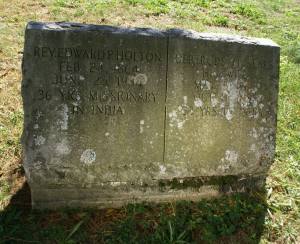
Gravestone of Rev. Edward Payson Holton (a son of Isaac F. Holton) who served as a Missionary in India for 36 years.
- Mention is made of running into a Miss Joanna Day in New Jersey, apparently a mutual acquaintance, who had been teaching school in the South. This is possibly Joanna Day (1813-1891) who married Ogden Brown in 1841.
- On his walk from Fitchburg to Boston, Holton mentions visiting Miss Amelia Edwards and her father in Concord, Massachusetts. The 1850 Census for Concord shows a 24-year old Amelia M. Edwards living with her 54 year-old father, Andrew Edwards, whose occupation is given as “Dentist.” Perhaps this is the family Holton visited.
- Holton doesn’t say which steamboat he intended to take across Lake Erie. It may have been one like the “Michigan” (see photo)
- Holton’s description of his journey from Fitchburg, Massachusetts to Buffalo, New York in this letter does not progress chronologically so I have prepared a November 1839 calendar mapping his location for the benefit of the reader:

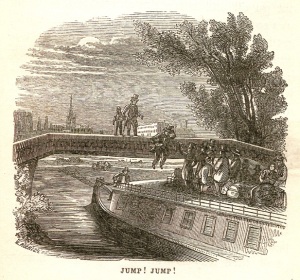
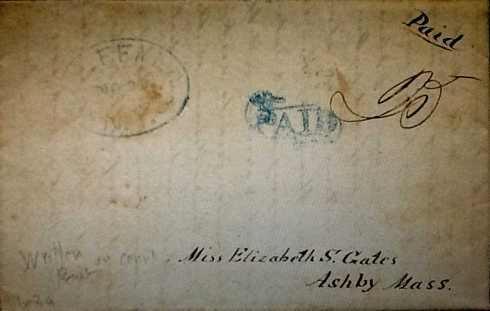
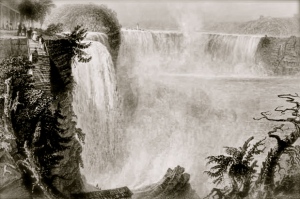
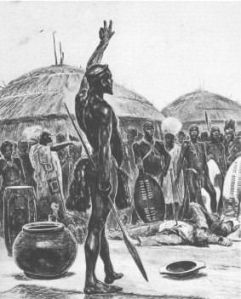
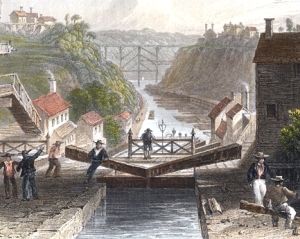
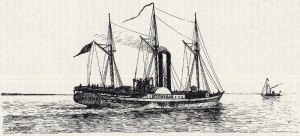
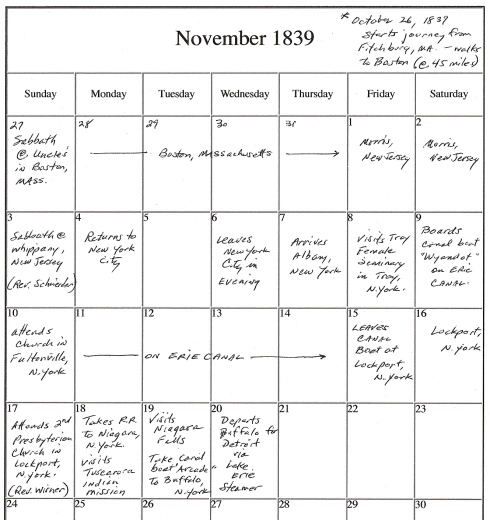
March 24th, 2014 at 12:39 pm
I have been looking at some of Dr Holton´s writings about the Nueva Granada, and have gladly found that he met at Guaduas some of my ancestor — the family of William Gooding who had arrived from Massachussets, from a family of clock makers. The descriptions by Holton are extremely human and sensitive. Thank God he left that heritage for my country.